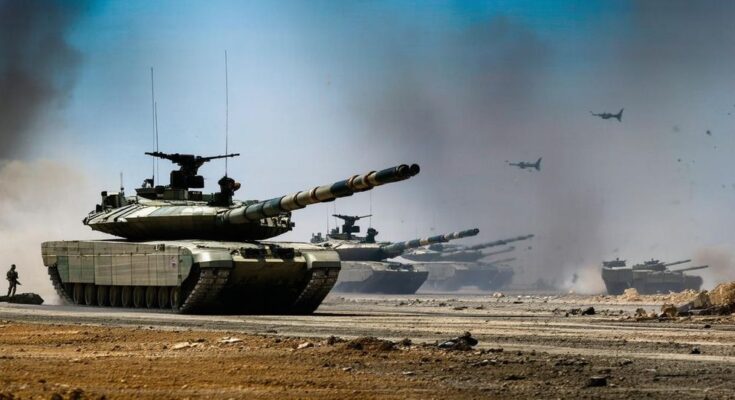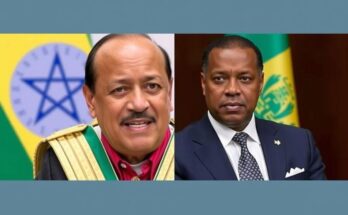Turkey launched airstrikes in Kurdish-held areas of Syria and Iraq, killing 12, in retaliation for a deadly attack on a Turkish defense firm linked to the PKK. The U.S.-backed Syrian Democratic Forces reported casualties, while the PKK’s leader indicated a willingness to end hostilities amidst renewed governmental talks.
Turkey conducted airstrikes late Wednesday in Kurdish-controlled regions of Syria and Iraq in response to an attack on a state-owned defense manufacturer in Ankara. This assault, which resulted in the deaths of four individuals and injuries to over a dozen, was attributed to the Kurdistan Workers’ Party (PKK) by the Turkish government. President Recep Tayyip Erdogan labeled the act a “nefarious” attack on the Turkish Aerospace Industries headquarters near Ankara. Verified video footage indicated damage to infrastructure in Kobani and Qamishli, significant locations within the semi-autonomous Kurdish region of northeast Syria. The Syrian Democratic Forces (SDF), vital allies of the U.S. in the fight against ISIS, reported that the strikes resulted in 12 fatalities—including two children—and injured 25 additional individuals. Turkey’s defense ministry confirmed targeting 47 sites it deemed as “terrorist” locations in Syria and Iraq. General Mazlum Abdi, commander of the SDF, criticized Turkey’s strikes for their indiscriminate nature, highlighting damage to civilian facilities such as healthcare centers in the region. He asserted, “We have repeatedly shown our readiness for dialogue. Meanwhile, we affirm that our forces are ready to defend our people and land.” Despite the ongoing conflict, approximately 900 U.S. forces remain deployed in the area as part of an international coalition against ISIS. The SDF has historically been the primary ground partner for the United States in northeast Syria. As of Thursday morning, neither the U.S. Defense Department nor Central Command had issued statements regarding the attacks in Ankara or Turkey’s subsequent military actions. Turkey regards the SDF and its affiliated civilian organization, the YPG, as direct extensions of the PKK, which has led a decades-long insurgency within Turkey and is listed as a terrorist organization by both Turkey and the United States. The PKK is primarily based in the Qandil mountains of northern Iraq, which is also frequently subject to Turkish military operations. No group has claimed responsibility for the attack in Ankara, which coincided with renewed discussions between the Turkish authorities and the imprisoned PKK leader, Abdullah Ocalan, who has remained in custody for over twenty years. Ocalan’s nephew, Omer, a member of the Turkish Parliament, relayed a message indicating that Ocalan may be willing to conclude the longstanding violent conflict dating back to the mid-1980s. Furthermore, Devlet Bahceli, leader of the Nationalist Movement Party and Erdogan ally, extended an invitation to Ocalan to address parliament, suggesting the possibility of parole in exchange for the disbandment of the PKK.
The article addresses the recent military tensions resulting from an attack attributed to the PKK in Turkey and the Turkish government’s retaliatory airstrikes in Kurdish regions. It highlights the historical context of the PKK’s insurgency, the significance of U.S.-allied Kurdish forces in the region, and the ongoing dynamics between Turkey and the PKK, including political negotiations and military responses. The situation underscores the complexities of U.S. involvement in the fight against ISIS while navigating relations with Kurdish forces regarded by Turkey as terrorist affiliates.
In summary, Turkey’s airstrikes in response to an attack on a defense facility in Ankara have resulted in significant casualties and highlight the intensifying military actions against Kurdish groups in the region. With the backdrop of U.S. military support for the SDF and ongoing PKK discussions, the situation remains complex and potentially volatile.
Original Source: www.cbsnews.com




